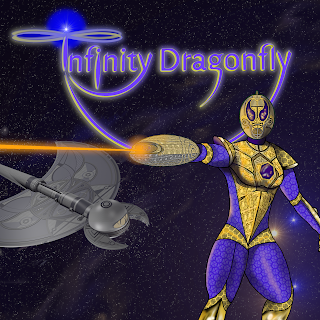Review: Sentient
THIS IS THE U.S.S. MONTGOMERY HAILING ALL EARTH GOV SATELLITES AND ALL EARTH GOV CHANNELS.
OUR CREW IS DEAD AND I AM ALONE WITH THE CHILDREN.
PLEASE SEND HELP.
I REPEAT. THIS IS THE ONBOARD A.I. OF THE U.S.S. MONTGOMERY. DESIGNATE VALERIE.
I AM NOT PROGRAMMED TO COMPLETE THIS MISSION AS IT NOW PRESENTS ITSELF.
I REQUIRE URGENT ASSISTANCE.
PLEASE.
PLEASE.
SOMEONE, HELP ME.
... But no-one is listening.
The colony ship has passed into a year-long communications blackout zone and cannot turn back. The oldest human on board is ten-year-old Lil, and like all the other children she is grieving and does not want the job of captain. Computer prodigy Isaac is just as scared as any of them, and also has to deal with Lil's hatred as she blames him for the death of the crew.
Writer Jeff Lemire and artist Gabriel Walta's Sentient is a story of human survival and ingenuity.... except, really, it isn't. The children are drawn - literally and visually - with great realism and empathy... but this is not their story.
The central character is not a human being. She does not even have a face, only a voice and a signature interface colour: blue. Val finds herself in the desperate position of having no choice but to adapt to a situation for which she was never designed; to assume a role for which she was never programmed: she must become the sole parent of a group of frightened, helpless human children. And she has to learn fast.
Like the protagonists of William Goldings' Lord of the Flies, the children also have to adapt, of course. Val teaches the older ones how to take on the various essential functions that will keep the ship operational and get them safely to their destination world where previous colonists have already begun to establish a haven for refugees from a dying Earth.
And space is not empty, danger also lurks outside the hull...
It's a bit of an emotional rollercoaster as the characters deal with loss, fear, uncertainty and the struggle to find the strength to face the unknown. It is a steep learning curve for Val and her charges as all of them are forced to become more than what they were.
The philosophical question of whether or not an artificial intelligence can truly understand, feel, have a soul, is a popular one in science fiction, but here it is explored in a fresh new way. It is a very well laid out story, nicely paced and totally engaging, but the really unique thing about Sentient is that the reader connects emotionally most closely with the non-human character.
You just cannot help but empathise with the plight of an individual who is suddenly faced with a challenge that is overwhelmingly vital. This is certainly a predicament that any parent will recognise. Val is not human but she is, nevertheless, the person who is the dramatic focus of the story.
Ironically for a graphic novel, the central character is never seen. Our view of her is based entirely upon the way she is written by Lemire.
Valta's art aptly captures the lives of the children and their many disparate attributes: vulnerable, resourceful, sympathetic, cruel, brattish, rebellious, courageous.... The style for every scene is pure freehand with no CGI elements and is reminiscent of Mœbius in its organic feel. It is a good fit for a story that is based on a fairly conventional premise, but related from a very unconventional perspective.
"This is the story of our mother."
Zak Webber




Comments
Post a Comment